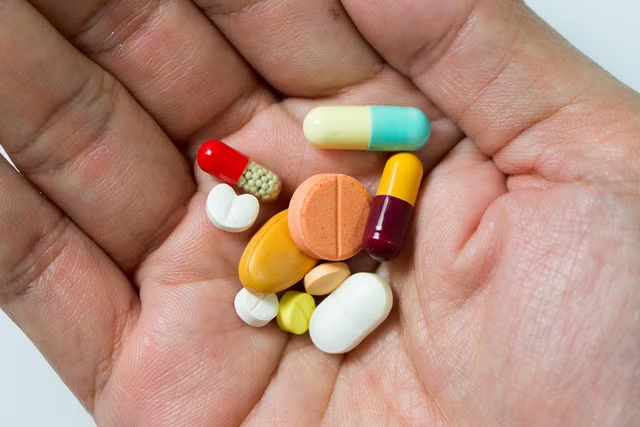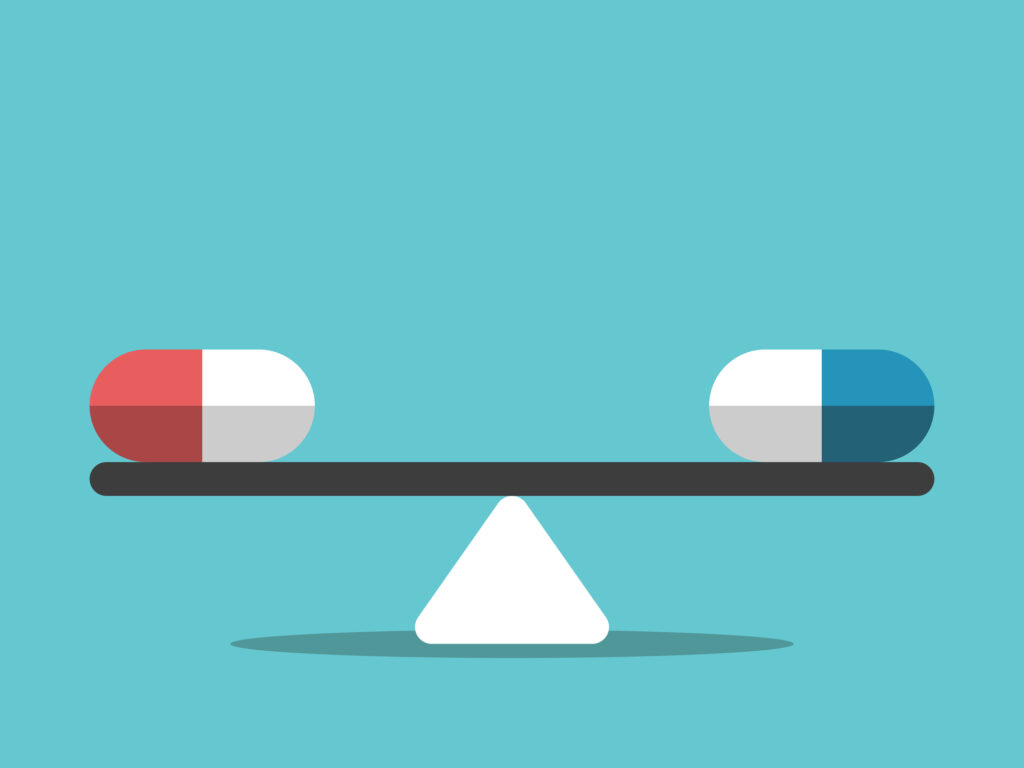The subject of mental health and mental health problems is becoming more popular in our world today. And one thing that might come up frequently in conversations like this is the use of antidepressants. Finding the right one that works for you while considering the pros and cons of antidepressants can prove to be a real hassle. In this article, I’ll answer any questions about antidepressants, using their pros and cons as a reference point, whether you have some worries or simply want to know more about them.
But first, let’s start with the basics: What are antidepressants?
Key Takeaways
- Antidepressants are a group of medications that are used in the treatment of depression and other related mental health disorders like Obsessive-Compulsive Disorder (OCD) and Post-Traumatic Stress Disorder (PTSD).
- Some types of antidepressants are Selective Serotonin Reuptake Inhibitors (SSRIs), Serotonin-Norepinephrine Reuptake Inhibitors (SNRIs), and Tricyclic Antidepressants (TCAs).
- Antidepressants are well-studied and generally Safe, they can help you succeed in other parts of your treatment plan and can improve your quality of life.
- However, they have side effects, they don’t produce positive results instantly and it can lead to dependence on the drug.
- Depression can be difficult, and a treatment that works for one person might not be effective for another. What is important is discovering the strategy that works best for you.
What Are Antidepressants?

Antidepressants are a group of medications that are used in the treatment of depression and other related mental health disorders like Obsessive-Compulsive Disorder (OCD), Post-Traumatic Stress Disorder (PTSD), and Generalised Anxiety Disorder (GAD).
They can also serve as a therapeutic option for people experiencing persistent and chronic pain. Antidepressants affect the way neurotransmitters work. They lessen the biological effects of stress on the brain, reduce neuroinflammation (swelling in the brain or spinal cord), and thus help the brain handle stress better in the future.
There are different types of antidepressants, and they include:
1. Selective Serotonin Reuptake Inhibitors (SSRIs)
SSRIs like Prozac and Zoloft help increase serotonin in the brain by preventing its release. This consequently leads to an improved mood and fewer symptoms of depression.
2. Serotonin-Norepinephrine Reuptake Inhibitors (SNRIs)
SNRIs like Effexor and Cymbalta work on serotonin and norepinephrine to help control mood.
3. Tricyclic Antidepressants (TCAs)
Amitriptyline is an example of TCAs. They affect multiple neurotransmitters and often do a good job, but they have more side effects than newer antidepressants.
4. Monoamine Oxidase Inhibitors (MAOIs)
MAOIs were some of the first antidepressants. They work well, but you have to be very careful with your diet because some foods and medicines can react badly to them. An example of MAOIs is Nardil.
5. Atypical Antidepressants
An example of this type of antidepressant is medications like Wellbutrin. They work in different ways and affect the dopamine level in the brain.
Now with the basics out of the way, let’s go over the pros and cons of antidepressants.
Antidepressants Pros and Cons

Antidepressants Pros
Taking antidepressants has numerous pros. Being aware of these advantages can help you make an informed decision when choosing the best one for you. Here are some antidepressant pros you should know:
#1. They Are Effective at Relieving Symptoms
Antidepressants have been demonstrated to be more successful than placebo in treating serious depression in adults. Although they often take a few weeks to take effect, and you may need to try more than one to discover the best one for you, when you do, they are very effective at relieving your symptoms.
#2. They Are Well-Studied and Generally Safe
The Food and Drug Administration (FDA) has authorized all antidepressants. This means they have undergone extensive testing and clinical trials. Hence, antidepressants are proven to be generally safe to use.
#3. They Can Help You Succeed in Other Parts of Your Treatment Plan
If your treatment plan includes a variety of activities, such as doing basic self-care tasks, antidepressants can be helpful for you. Antidepressants can help restore your energy so you can complete everyday tasks and participate in therapy and other items on your treatment plan.
#4. Improved Quality of Life
People who use antidepressants report an improved quality of life. They are less inclined to react badly to life experiences, and they can examine situations more calmly and concentrate better.
Antidepressants Cons
Just as they have many benefits to offer, antidepressants also come with disadvantages. Here are some cons of antidepressants:
#1. They Have Side Effects
Antidepressants may induce several side effects, including but not limited to feelings of nausea, sensations of dizziness, changes in body weight, difficulties with sleep, and challenges related to sexual functioning. The intensity and duration of these side effects may vary from one person to another.
#2. They Don’t Produce Positive Results Instantly
As I mentioned earlier, even though antidepressants are effective, their results are not instantaneous. It is not uncommon for you to experience an initial worsening of your symptoms before you begin to feel better. In some cases, this might even lead you to have doubts about how effective the prescribed medication will be.
#3. It Can Lead to Dependence on the Drug
This right here is a valid concern. As you continue taking antidepressants, there is a possibility of developing dependence on the medication. Some people fear they may be unable to function properly without the medication, which leads them to become overdependent on it.
#4. It Can Lead to Withdrawal Symptoms
Another disadvantage of antidepressants is that you may experience withdrawal symptoms when you decide to discontinue the drug. People who have been using the medication for a long time may suffer this when they choose to stop the drug. These symptoms include dizziness, irritability, flu-like symptoms, and, in some cases, even sensations similar to electric shocks. It is important that if you ever decide to discontinue antidepressants, you must speak with your doctor to create a safe plan to prevent these withdrawal symptoms.
#5. They Can Affect Your Sex Drive
About one out of every five people in the US experience side effects on their sexual drive as a result of taking antidepressants. Some challenges that you may experience are delayed lubrication, delayed or stopped orgasm, or even difficulties in sustaining an erection. If these side effects are affecting your sexual relations adversely, I would recommend that you consult with your healthcare provider so you can change the dosage or perhaps even start a different treatment plan altogether to effectively deal with the symptoms.
#6. Interaction With Other Medications
When antidepressants interact with other medications, they can give rise to potentially harmful consequences. Hence, your healthcare providers must be brought up to speed on whatever other medications you’re on before they can prescribe an antidepressant that is safe for you.
How Do Antidepressants Work?

Antidepressants are believed to produce their therapeutic effects by increasing the levels of some chemicals in the brain known as neurotransmitters. The neurotransmitters found in the brain are serotonin and noradrenaline. They help to enhance your mood and emotions as well. This process of increasing the levels of neurotransmitters affects the transmission of pain signals initiated by nerves. This also explains how certain antidepressants can help manage chronic pain.
Although antidepressants can effectively treat the symptoms of depression, it is important to note that they may not always target the underlying causes of the condition directly. This is precisely why it is best to combine antidepressants with therapy. This type of treatment plan has proven to be more helpful in dealing with severe depressive symptoms or other mental health disorders.
How Long Does It Take Antidepressants to Work?
In contrast to other medications, the effects of antidepressants do not take place immediately after taking them. You may not experience any positive effects from the drug until you have taken it regularly for at least four weeks.
In some cases, optimal effects may not even take place until after 6–8 weeks. How soon you see results depends on the severity of your depression symptoms, mood swings, or anxiety. Your doctor will usually increase the dosage of medications gradually based on your body’s response to the medication. It is up to you and your doctor to determine the right dosage for your symptoms and body.
Ensure that you keep communicating with your doctor about your symptoms, needs, and goals. Do not make any decision to discontinue your medication without first discussing it with your doctor.
What Should You Consider When Deciding Whether or Not to Take Antidepressants?
Choosing whether or not to take antidepressants is a decision that should be made after carefully evaluating certain factors. One of such factors is the severity of your symptoms. If you are struggling to function, having suicidal thoughts, or finding it difficult to cope, then starting on medication may be a pressing choice.
The duration of your symptoms is another essential factor when considering whether or not to take antidepressants. If your symptoms have continued for several weeks or months and are not improving, you may require medical attention.
Another aspect to consider is the potential interactions between antidepressants and other medications you may be taking. Some drugs can have harmful interactions with antidepressants. To avoid any likely side effects that may occur as a result of this interaction, make sure you tell your doctor about any other medications or supplements you are taking.
Finally, before deciding whether or not to use antidepressants, you should also consider trying psychotherapy or talk therapy. This can be effective on its own or in conjunction with antidepressants.
What works best for you will depend on your individual preference, your circumstances, and the advice provided by your doctor. Make sure you speak honestly with your doctor so you can both make the best choice for you.
Are Antidepressants Safe?
Yes, antidepressants are safe. When it comes to medications, several things define how safe they are, such as how safe the drug is when taken in overdose, how bad the side effects are, and the absence of any dangerous interaction between the said medication and other drugs or chemicals you’re using.
And many studies have shown that antidepressants are safe. As a matter of fact, they have even been proven to be safe for certain groups of people who are more likely to have side effects, such as pregnant women, people who have had organ transplants, people with active tumors, and people who have just had a stroke.
Antidepressants vs. Talk Therapy
There is a common misconception concerning the treatment of major depressive disorders that suggests that it should be either pharmacological interventions, such as antidepressants, or only talk therapy.
It is true that a talk therapy session with a trained counselor is more expensive and time-consuming compared to taking an inexpensive antidepressant pill. Nevertheless, it is important to note that each of these approaches has unique benefits that can be better maximized when combined.
Many experts have suggested that integrating both medications and talk therapy into your treatment plan can yield a more lasting solution to your depressive symptoms.
The effectiveness of a treatment plan for a depressed person may vary from person to person, depending on several factors. Therefore, I would recommend that you consider a personalized treatment plan that incorporates both medication and talk therapy, as this could be the approach that yields the outcomes you are striving for.
Will Antidepressants Work Without Therapy?
Depression can be difficult, and a treatment that works for one person might not be effective for another. What is important is discovering the strategy that works best for you.
Regular therapy sessions are helpful for some people, while others find that antidepressant medication is more useful in treating their depression.
Antidepressants are likely to provide you with some relief from the symptoms of depression in the short term. However, drugs alone may not work as well in the long term compared to combined treatment.
Therapy teaches you long-term management strategies for your symptoms that you can always apply, even after you stop attending sessions. These strategies remain helpful even after you have stopped receiving treatment. On the other hand, the effects of medication are only felt when you’re taking the medication.
Even though antidepressants can cure your symptoms without therapy, doing so might not be the best thing for your mental health in the long run if you desire a near-permanent solution.
Final Words on Antidepressants Pros and Cons
There is a common fear that taking antidepressants will have unpleasant side effects. And just like every other medication, the pros and cons of antidepressants must be considered. In any case, if the drug is working, you will begin to feel more like yourself, not less. And if you don’t begin to see any changes immediately, remember that it may take a few trials and adjustments to find the right one for you.
Related Articles
- WARNING SIGNS AND SYMPTOMS OF DEPRESSION YOU SHOULD NEVER IGNORE
- 17+ Effective Journal Prompts for Mental Health (+ free PDF)
- 20 Best Mental Health Podcasts for Finding Support 2024
- 15+ Creative Mental Health Tattoo Ideas to Try out Now!






